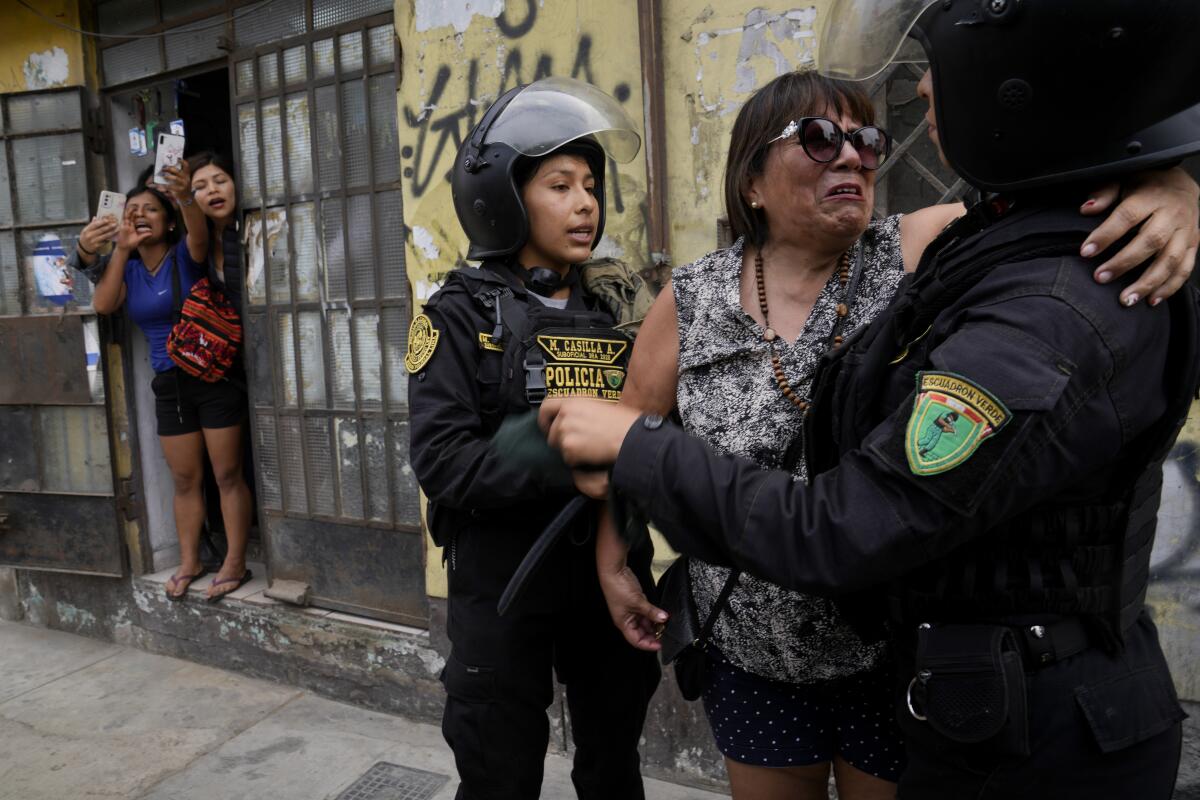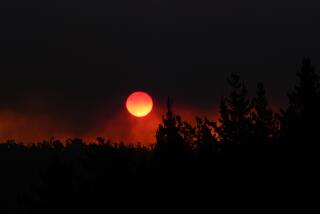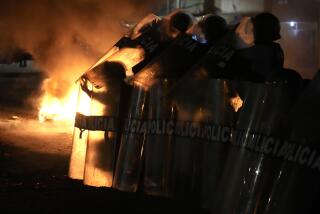Peru closes Machu Picchu as anti-government protests grow

LIMA, Peru — Peru indefinitely shut the tourist site Machu Picchu on Saturday in the latest sign that anti-government protests that began last month are increasingly engulfing the South American country.
The Culture Ministry said it had closed the country’s most famous tourist attraction as well as the Inca Trail leading up to the site “to protect the safety of tourists and the population in general.”
There are 417 tourists stuck at Machu Picchu who can’t get out, more than 300 of whom are foreigners, Luis Fernando Helguero, the tourism minister, said at a news conference.
The closure of the Incan citadel that dates back to the 15th century and is often referred to as one of the new seven wonders of the world comes as protesters have descended on the capital, Lima, largely from remote Andean regions, to demand the resignation of President Dina Boluarte.
The U.S. Justice Department is investigating the Abbott Laboratories infant formula plant in Michigan that was shut down for months last year due to contamination, the company confirmed
Police raided Peru’s most important public university in Lima on Saturday to evict protesters from far-away provinces who were being housed at the campus while participating in big demonstrations that began in the capital Thursday.
Protests, which until recently had been concentrated in the country’s south, began last month shortly after President Pedro Castillo, Peru’s first leader with a rural Andean background, was impeached and imprisoned after he tried to dissolve Congress. More than 55 people have died in the ensuing unrest.
The latest death happened Friday night, when one protester was killed and at least nine others injured in clashes with police in the southern Puno region.
Demonstrators are demanding the resignation of Boluarte, the former vice president sworn into office Dec. 7 to replace Castillo. They also want Congress dissolved and new elections held. Castillo is currently detained on charges of rebellion.
Some of the tourists stranded at Machu Picchu have chosen to leave by walking to Piscacucho, the nearest village, “but that involves a walk of six, seven hours or more and only a few people are able to do it,” Helguero said.
Train service to Machu Picchu has been closed since Thursday because of damage to the tracks. Some visitors choose to get to Machu Picchu via the Inca Trail, which involves a multi-day hike.
This is not the first time tourists have been stuck at Machu Picchu since the protests began.
Cusco, where Machu Picchu is located, has been the site of some of the most intense clashes between protesters and law enforcement, leading to significant loss of revenue for the tourism sector. The Cusco airport was briefly shut down this week after protesters tried to storm its facilities.
Tourists who had already bought tickets for Machu Picchu from Saturday until one month after the end of the protests will be able to obtain a full refund, the Culture Ministry said.
More to Read
Sign up for Essential California
The most important California stories and recommendations in your inbox every morning.
You may occasionally receive promotional content from the Los Angeles Times.











